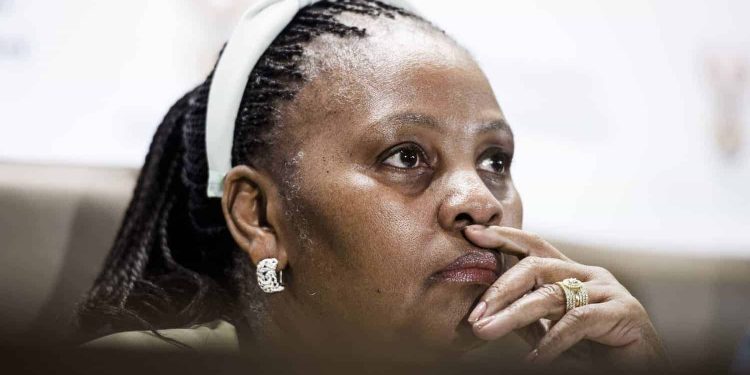United Democratic Movement (UDM) leader Bantu Holomisa has sharply criticized former Speaker of Parliament Nosiviwe Mapisa-Nqakula for her remarks on the judiciary. Mapisa-Nqakula recently suggested her legal troubles stemmed from her decision to allow a parliamentary inquiry into the Phala Phala farm theft scandal involving President Cyril Ramaphosa.
Speaking to The Citizen on Wednesday, Holomisa dismissed her claims as baseless excuses for alleged corruption. He highlighted that allegations of Mapisa-Nqakula’s involvement in corrupt activities date back to 2016, long before the Phala Phala controversy.
“She extorted money from a service provider. No amount of politics is going to help her,” Holomisa said, adding that her comments about the judiciary were “rubbish.”
ANC’s Track Record of Protecting Leaders
Holomisa also took aim at the African National Congress (ANC), accusing it of shielding its leaders from accountability. Citing examples like the Nkandla scandal, he noted that the party initially defended former President Jacob Zuma before he admitted to knowing about the controversial upgrades to his homestead.
Regarding Ramaphosa, Holomisa emphasized the importance of allowing the president to clear his name in court. “The Constitution allows the president to present his case in court. Even Madiba, whom I worked closely with, was summoned to court at one stage,” he said.
Holomisa, now serving as the deputy minister of Defence in the Government of National Unity (GNU), reiterated that the Phala Phala scandal continues to overshadow Ramaphosa’s presidency. He criticized the ANC’s integrity committee, calling it ineffective, and urged the president to resolve the matter through the judicial process.
Opposition Parties Demand Accountability
Meanwhile, the African Transformation Movement (ATM) defended Mapisa-Nqakula, suggesting her legal woes are politically motivated. The ATM, alongside the Economic Freedom Fighters (EFF), has been at the forefront of calls for accountability over the Phala Phala scandal.
EFF spokesperson Leigh-Ann Mathys stated that the party remains committed to pursuing the matter until a satisfactory outcome is achieved. “The EFF’s case highlights whether the National Assembly can effectively hold the executive accountable when the ruling party prioritizes political expediency over constitutional obligations,” Mathys said.
The Constitutional Court recently reserved judgment in the EFF’s challenge against Parliament’s dismissal of the Section 89 report, which recommended an impeachment inquiry into Ramaphosa. The court’s decision is expected to shape the scope of legislative accountability and executive oversight in South Africa.
Looking Ahead
As pressure mounts from opposition parties and critics like Holomisa, the Phala Phala saga continues to be a litmus test for South Africa’s democratic institutions and the commitment to holding leaders accountable, irrespective of political affiliations.






















